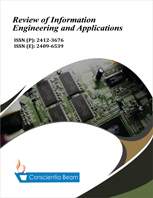Estimation of Viscosity of Azerbaijan Crude Oil
DOI:
https://doi.org/10.18488/journal.79.2019.61.8.16Abstract
In this study, the prediction issue of oil viscosity, on oil samples taken from Guneshli oil field of Azerbaijan has been viewed applying empirical correlations as Beggs-Robinson, Labedi, modified Kartoatmodjo, Elsharkawy and Alikhan, Al-Khafaji. The correlation models used in the evaluation of viscosity of Azerbaijan oil have been implemented in the Python software environment. The obtained values on empirical correlations have been compared to experimental data obtained from Guneshli oil field. The result of prediction has been evaluated using statistic functions as absolute average deviation (AAD), mean absolute error (MAE), correlation coefficient, root mean square error (RMSE). According to statistical analysis, it has been known that the Beggs-Robinson model has shown the lowest value on AAD (10.5614%), MAE (12.4427 %), RMSE (20.0853 %). The Labedi model has presented the worst result on every four criterions. Even though the Elsharkawy-Alikhan model has presented the highest result (99.9272%) on correlation coefficient, in the evaluation of viscosity of Azerbaijan crude oil, the Beggs-Robinson model can be considered more acceptable.

